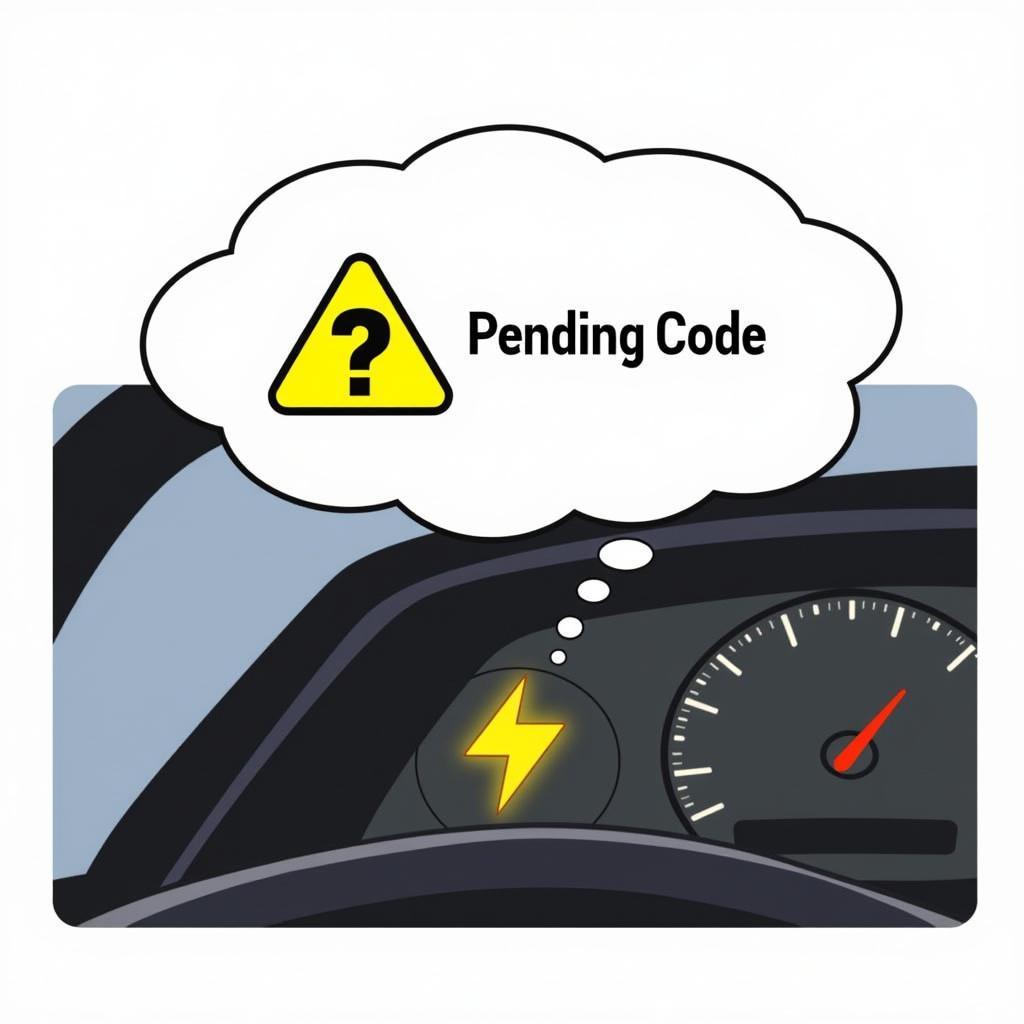When your car’s check engine light turns on, it can be a nerve-wracking experience. Is it something minor or a major engine problem? Thankfully, your car uses a system called OBD2 to communicate what’s going on. OBD2 stands for On-Board Diagnostics, and it uses specific codes to pinpoint issues. This article will delve into the different types of OBD2 codes: pending, stored, and permanent, explaining what they mean for you and your vehicle.
What Triggers an OBD2 Code?
Your car constantly monitors its performance using various sensors throughout the engine and emissions system. When a sensor detects a reading outside the normal parameters, it triggers an OBD2 code. These codes are like clues, helping mechanics quickly identify the problem area.
Deciphering the Types of OBD2 Codes:
Pending Codes: A Temporary Warning
A pending code means the OBD2 system has detected a potential issue, but it hasn’t been confirmed yet. Think of it as a preliminary warning. The issue may be intermittent, meaning it comes and goes, or the system needs more time to verify the problem.
Common Reasons for Pending Codes:
- Loose gas cap
- Sensor glitch
- Intermittent engine misfire
What to do about a Pending Code:
- Don’t panic: Pending codes often resolve themselves.
- Check for simple fixes: Secure your gas cap, and see if the code clears after a few driving cycles.
- Monitor the situation: If the code persists or other symptoms arise, it’s time for further diagnosis.
Stored Codes: The Issue Persists
If the problem that triggered the pending code happens again, or the OBD2 system confirms the issue, the code transitions from “pending” to “stored.” Stored codes indicate a consistent problem that needs attention.
What to do about a Stored Code:
- Read the code: Use an OBD2 scanner to retrieve the specific code.
- Research the code: Websites like OBDFree offer comprehensive code definitions and potential causes.
- Seek professional help: If the issue is complex, consult a qualified mechanic.
Permanent Codes: A Lasting Record
Permanent codes, as the name suggests, are designed to remain in the vehicle’s computer even after the issue has been resolved. They serve as a historical record of past problems. Not all states or manufacturers utilize permanent codes.
Why are Permanent Codes Used?
- Emissions testing: In some regions, emissions tests require a check for permanent codes to ensure repairs were made.
- Vehicle history: Permanent codes can inform mechanics about previous issues, potentially aiding future diagnoses.
Can You Delete OBD2 Codes?
While it’s possible to clear OBD2 codes using a scanner, it’s not always the best course of action.
- Deleting Pending Codes: May be harmless, as they might clear on their own.
- Deleting Stored or Permanent Codes: Not recommended unless the issue is genuinely fixed. Deleting codes without addressing the root cause can mask problems and make future diagnosis difficult.
Understanding OBD2 Codes is Key to Car Care
OBD2 codes are essential tools for car owners and mechanics alike. By understanding the difference between pending, stored, and permanent codes, you’ll be better equipped to manage your vehicle’s health. Remember, while this article provides general information, the specific meaning of codes can vary depending on your car’s make, model, and year.
Need help with BMW OBD2 codes? Check out our BMW OBD2 instructions.
FAQs:
1. How long do pending codes stay pending?
Pending codes typically clear after a certain number of driving cycles (starting and stopping the engine) or if the issue doesn’t reoccur.
2. Will disconnecting the battery clear OBD2 codes?
Yes, temporarily disconnecting the battery can clear OBD2 codes, but it’s not a reliable fix. The codes will return if the underlying problem persists.
3. Are permanent codes a bad thing?
Permanent codes are not inherently bad. They provide a history of repairs and can help ensure emissions compliance.
4. Can I check OBD2 codes myself?
Yes, affordable OBD2 scanners are readily available.
5. What are some common OBD2 codes?
Some frequently occurring codes include:
- P0420: Catalyst System Efficiency Below Threshold
- P0300: Random/Multiple Cylinder Misfire Detected
- P0171: System Too Lean (Bank 1)
Need to understand more about permanent OBD2 codes? Learn more about what are permanent codes OBD2 and explore options for deleting permanent obd2 codes.
For those working with Volkswagen vehicles, our resource on OBD2 error codes for VW can be particularly insightful.
Looking for a way to connect your OBD2 scanner to your older BMW? Find out more about OBD2 to 20 pin BMW adapters.
Get in touch with us through WhatsApp: +1(641)206-8880 or Email: [email protected]. Our dedicated customer support team is available 24/7 to assist you.
